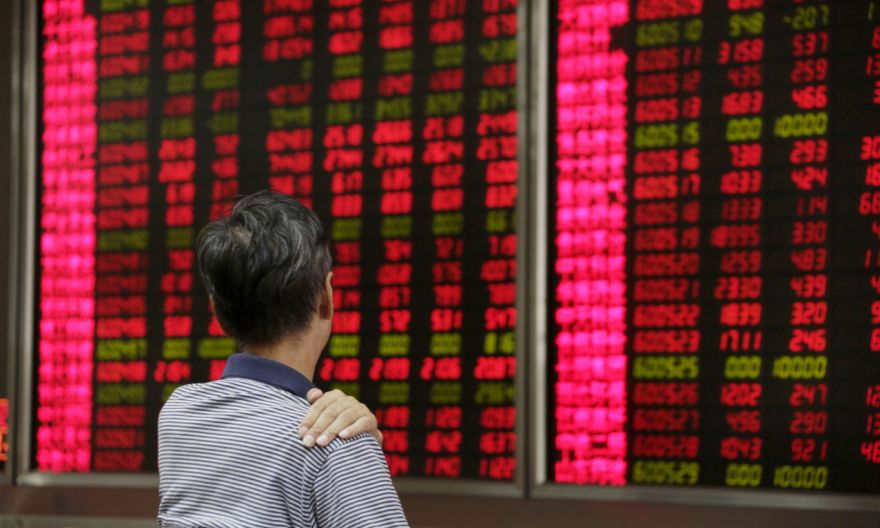China state media seeks to calm investor nerves after stock rout

BEIJING (BLOOMBERG, AFP) – A move by Chinese state media to reassure investors shaken by Beijing’s regulatory crackdown saw a mixed impact on Wednesday (July 28), as the benchmark stock index swung between gains and losses following a two-day sell-off.
The CSI 300 Index fell as much as 1.8 per cent before recovering some ground to close at 0.19 per cent higher. . The gauge, which has neared a bear market after declining from a February peak, was little-changed by the midday break.
State media talked up the market after a wave of selling that had seen nearly US$1.5 trillion (S$2 trillion) of market value wiped off Hong Kong and mainland shares in the three trading days through Tuesday, according to Bloomberg-compiled data. Investors had dumped stocks in the crosshairs of Bejing’s sweeping regulatory crackdowns, with selling also spreading to bond and currency markets.
if( window.innerWidth<=740 && document.getElementById("dfp-ad-imu1-mobile") != null) {
var element = document.getElementById("dfp-ad-imu1");
element.parentNode.removeChild(element);
document.getElementById("dfp-ad-imu1-mobile").id = "dfp-ad-imu1";
}
googletag.cmd.push(function() {
googletag.display("dfp-ad-imu1");
});
The Hang Seng Index rose 1.54 per cent after fluctuating throughout the morning session on Wednesday. The gains, however, barely covered the steep losses in the previous three trading days. Meituan, which had seen its stock hammered amid China’s new regulations on the food delivery sector, erased a gain of 12 per cent. Tencent Holdings fell 3.7 per cent, extending Tuesday’s 9 per cent plunge. The Hang Seng Tech Index edged lower after gaining as much as 3.9 per cent.
Recent declines are unsustainable and the market will stabilise quickly, the Securities Daily reported, citing fund managers. The slump has “to an extent, reflected the misreading of policies and venting of sentiment by some funds,” wrote the Securities Times in a front page editorial, adding that economic fundamentals are unchanged and the market may stabilize at any time.
The jawboning follows dramatic market moves that underscored the fragility of investor confidence amid a months-long regulatory onslaught by Beijing. Traders fear the latest crackdown on the nation’s education, tech and property sectors could expand to other industries such as health care, as China looks to tighten its grip on Big Tech and reduce the wealth gap. The government has targeted private enterprises it blames for exacerbating inequality and increasing financial risk.
if( window.innerWidth<=740 && document.getElementById("dfp-ad-midarticlespecial-mobile") != null) {
var element = document.getElementById("dfp-ad-midarticlespecial");
element.parentNode.removeChild(element);
document.getElementById("dfp-ad-midarticlespecial-mobile").id = "dfp-ad-midarticlespecial";
}
googletag.cmd.push(function() {
googletag.display("dfp-ad-midarticlespecial");
});
Elsewhere, the China Securities Journal echoed other publications in saying there was no systemic risk, and cited domestic mutual and private fund managers saying that there is no need for investors to be overly pessimistic. The Shanghai Securities News also carried a piece citing analysts that the decline has brought buying opportunities in quality stocks.
“While adjustment of polices in some industries may affect their current business model, it will be beneficial toward unleashing more social vitality in the mid-to-long term and aid consumption in most other areas,” the Securities Times said, adding that overall valuations in A shares are reasonable.
“There has been panic in some sectors more than others in recent days, and the important thing is to keep emotions in check,” said Du Kejun, fund manager at Beijing Gelei Asset Management Center, adding that he would consider buying EV firms and chipmakers if the dip continues.
